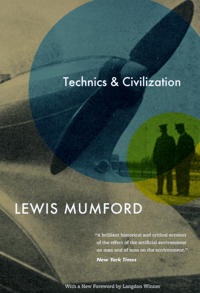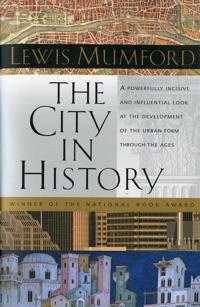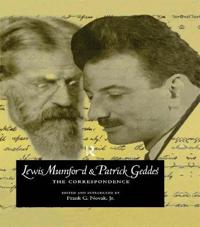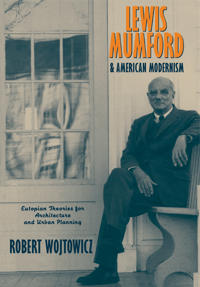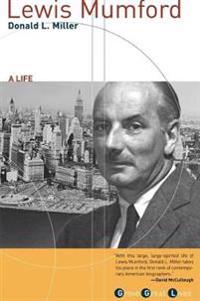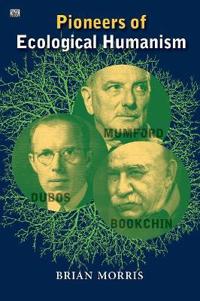Technics and Civilization (Pocket)
avLewis Mumford, Langdon Winner, Lewis Mumford
ISBN: 9780226550275 - UTGIVEN: 201010"Technics and Civilization" first presented its compelling history of the machine and critical study of its effects on civilization in 1934 - before television, the personal computer, and the Internet even appeared on our periphery. Drawing upon art, science, philosophy, and the history of culture, [...]
Pentagon of Power: The Myth of the Machine, Vol. II (Häftad)
avLewis Mumford, Mumford, Gina Maccoby Literary Agency
ISBN: 9780156716109 - UTGIVEN: 197403In this concluding volume of The Myth of the Machine, Mumford brings to a head his radical revisions of the stale popular conceptions of human and technological progress. Far from being an attack on science and technics, The Pentagon of Power seeks to establish a more organic social order based on t[...]
The City in History (Pocket)
avLewis Mumford
ISBN: 9780156180351 - UTGIVEN: 196806An examination of Cities of the Western world tracing their development from Egypt through the Middle Ages to the present[...]
Art and Technics (Övrig)
avLewis Mumford
ISBN: 9780231121057 - UTGIVEN: 2000-10-11Lewis Mumford - architectural critic, theorist of technology, urbanologist, city planner, cultural critic, historian, biographer, and philosopher - was the author of more than thirty influential books, many of which expounded his views on the perils of urban sprawl and a society obsessed with "techn[...]
Lewis Mumford and Patrick Geddes
ISBN: 9780415756488 - UTGIVEN: 2014-02First published in 1995. Routledge is an imprint of Taylor & Francis, an informa company.
Lewis Mumford and American Modernism
ISBN: 9780521639248 - UTGIVEN: 1998-05Lewis Mumford and American Modernism examines the career and writings of America?s leading critic of architecture. The author of numerous books on the history of architecture, Mumford focused on the roles that technology and urbanism have played in modern civilisation. One of the first to write appr[...]
Lewis Mumford (Häftad)
avDonald L Miller
ISBN: 9780802139344 - UTGIVEN: 200210Malcolm Cowley called Lewis Mumford "the last of the great humanists, " and indeed, in more than six decades of writing, Mumford made contributions to history, philosophy, literature, art, architectural criticism, and urban planning. The author of some thirty books, Mumford produced a body of work a[...]
Lewis Mumford's Reception in German Translation and Criticism
ISBN: 9780819195647 - UTGIVEN: 1994-11This book seeks to demonstrate the transformations of Lewis Mumford's writings as they are effected by the conditions of being read in a different cultural context. The book accepts that meaning is culture-specific. Tschachler argues that the German "Mumford" is shaped both by attitudes toward the U[...]
Pioneers of Ecological Humanism: Lewis Mumford, Rene Dubos and Murray Bookchin (häftad)
ISBN: 9781551646077 - UTGIVEN: 2017-05Lewis Mumford and the Ecological Region (Häftad)
ISBN: 9781572302280 - UTGIVEN: 1996-12This book traces the development of Lewis Mumford's ideas and his work as founder of the Regional Planning Association of America (RPAA), and then explores the relevance of Mumford's vision to today's urban and environmental problems.[...]

